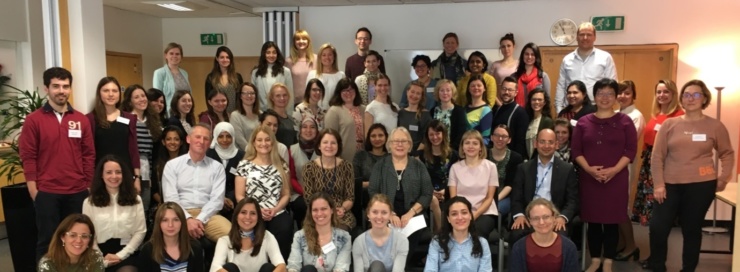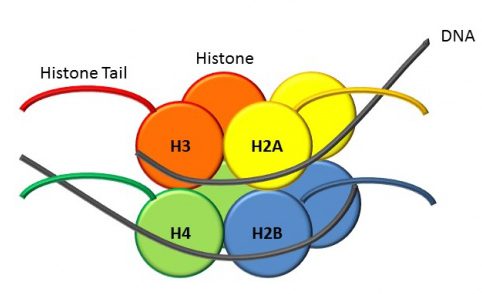Manchester-led dysmorphology course a success

The 9th “Dysmorphology in the Genomics Era” course, held in Manchester at the Nowgen Centre, was a resounding success. Already a leading centre for clinical genomics in Europe, MCGM demonstrated the increasingly global reach, with attendees coming from the USA, Saudi Arabia, India, Malaysia, Palestine, and Argentina. The faculty was almost all Manchester-based from the University of Manchester, and MCGM. 14 scholarships were awarded from the European Society of Human Genetics (ESHG) and the European Reference Network, ERN-Ithaca.
The course organisers were Professor Dian Donnai, Dr Sid Banka, Dr Sofia Douzgou, and Professor Jill Clayton-Smith.
Read more about the course on the Research & Innovation website.
Disease discoveries unlock door to diagnosis and new treatments
An international study led by Dr Siddharth Banka has identified a family of five new genetic diseases, which cause combinations of developmental delay, and problems with growth, heart, kidney and other organs. The study will be published in the American Journal of Human Genetics.

The diseases – coined by the team as histone lysine methylation disorders – are the result of abnormalities in master regulator genes, which are dedicated to regulating the processes that control DNA modifications and gene expression.
Dr Victor Faundes, a PhD student in Dr Banka’s lab, studied genetic variants in a group of master regulators called ‘histone lysine methylases and demethylases or KMTs and KDMs. He said
This is an important discovery because we already know that some drugs can control the activity of KMTs and KDMs and thus could be potential treatments for these conditions.
Further detailed studies are planned by Dr Banka to try to understand the biological link between the mutations and the the clinical problem.
You can read more about the disease discovery on the trust’s Research & Innovation website.
Disease caused by reduction of most abundant cellular protein identified
Dr Siddharth Banka has led an international team of scientists and doctors to identify a new disease that results in low levels of a common protein found inside our cells. The study was published in the reputed American Journal of Human Genetics.
β-actin is the cell’s most abundant protein, providing shape and allowing them to move. It is fundamental to a number of biological functions. The team say the new disease is caused by gene mutations which result in half of the normal β-actin levels.
Dr Sara Cuvertino, a Research Associate at The University of Manchester and first author of the paper, said:
β-actin is so vital to our cells that it was very surprising for me that patients could still survive on just half the normal levels of this critical protein.
Read more about the study into this rare genetic disease on the MFT Research & Innovation Website.
Devastating disease which changes brain size discovered
A new genetic disease that affects the size of our brains and causes severe developmental problems has been identified by an international collaboration led by scientists and doctors from the UK, Netherlands and the USA.
Whilst working on another project, Dr Siddharth Banka noticed that three children with large or small brains and delayed development each had mutations in the RAC1 gene. The gene had never previously been linked to human disease, and mutations in no other single gene have previously shown this extent of variability in brain size. Four more children were found in the Netherlands with mutations in the same gene and altered brain-sizes. Some of the affected children were also found to have epilepsy and heart defects. It it thought that the discovery will lead to the identification of further undiagnosed patients.
Dr Banka said:
Evolution has tinkered with thousands of genes over millions of years, to shape the human brain, an organ that is remarkably consistent in its appearance and size across billions of people. However, occasionally a tiny little alteration in just one of these thousands of genes can have devastating effects, reflecting the fine balance of this complex genetic orchestra


